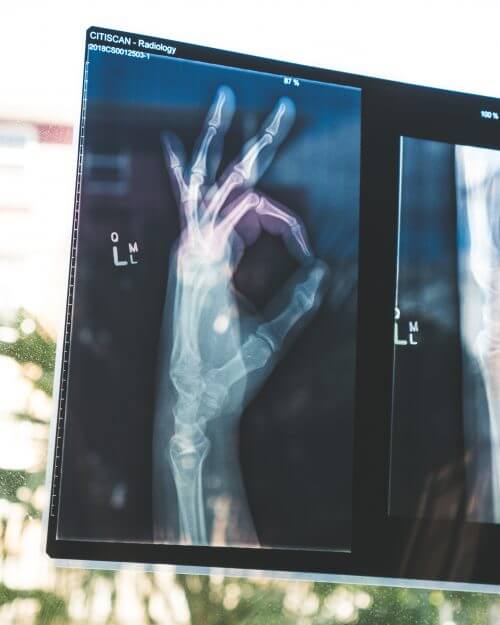Indemnity Benefits
Disclaimer
The information provided on this website as a whole does not, and is not intended to, constitute legal advice. Rather, all information, content, and materials available on this site are for general informational purposes only. Readers of this website should contact their attorney to obtain advice with respect to any particular legal matter. No reader of this site should act or refrain from acting on the basis of information on this site without first seeking legal advice from counsel.
Information on this website may not constitute the most up-to-date legal or other information. All liability with respect to actions taken or not taken based on the contents of this site are hereby expressly disclaimed. The content on this posting is provided “as is;” no representations are made that the content is error-free.
This website contains links to other third-party websites. Such links are only for the convenience of the reader, user or browser; the ABA and its members do not recommend or endorse the contents of the third-party sites.
Indemnity Benefits
Indemnity Benefits are bi-weekly checks from the insurance company sent to an injured worker while they recuperate from their injuries. These checks are not automatic and there are certain eligibility requirements that need to be met before the insurance company needs to provide this benefit. As such, it is extremely important that you are seen by an authorized Workers’ Compensation doctor as soon as possible after your injury. If you are not, then you could jeopardize your entitlement to indemnity benefits for that period.
If you have been injured at work and have not worked, but also have not received a check from Workers’ Compensation, please contact us to discuss. You may be eligible for indemnity benefits, plus penalties and interest.

Types of Indemnity Benefits (TPD / TTD)
Indemnity benefits can be categorized as “temporary total disability (TTD),” “temporary partial disability (TPD),” or “permanent total disability (PTD).” Temporary benefits are just that, temporary. These benefits terminate once the authorized medical provider(s) have removed all work restrictions and/or place you at Maximum Medical Improvement (MMI). Otherwise, these bi-weekly checks should continue for a maximum of 260 weeks (see Westphal v City of St. Petersburg, 194 So. 3d 311, Fla. Supreme Court 2016; in conjunction with Jones v Food Lion, Inc., 202 So.3d 964, Fla. 1st DCA 2016).
The only difference between “temporary partial” and “temporary total” disability is that under temporary total disability, the authorized doctor has opined that you cannot yet return to work, not even sedentary duty for the time being. Temporary partial disability refers to the period when the authorized doctor opines that you may return to work, but under certain work restrictions, such as no lifting over 10 lbs. The indemnity checks will be a little less under temporary partial disability.
Permanent Total Disability (PTD)
On other occasions, the injury is of such severity that it is determined that you will no longer be able to work, even sedentary work, within a 50-mile radius of your home. These benefits continue until 75 years of age. This is unless you are ineligible for Social Security Disability or retirement benefits only because of your compensable work accident prevented you from working sufficient quarters to be eligible for said federal benefits. If so, then your benefits would continue for life.
If you feel you are injured at work to such a degree, you may be entitled to PTD benefits. Please contact our office for a free consultation.

Average Weekly Wage (AWW)

Regardless of the category of indemnity, the rate at which each is determined by the Average Weekly Wage. This rate is determined by the amount of pre-tax wages (gross) you made for the employer in the 13 weeks prior to your accident (not to include the week of your accident).
This rate can be increased if you also received the following:
- Concurrent employment (a second job)
- Fringe Benefits (ex. employer paid health, dental, vision benefits)
The AWW can easily be miscalculated by the Insurance Company. For example, the insurance company usually determines how much money you made by asking the employer to fill out a handwritten “Wage Statement” which is to show your wages. All too often the documents are filled out incorrectly by the employer, which results in you getting checks at a lower amount than they should be. If you feel your bi-weekly Workers’ Compensation checks are less than what they should be, contact us so we can help.
Penalties and Interest
If the Insurance Company is late in sending you your bi-weekly Workers’ Compensation check, even by just one day, they owe you at least $5 in interest. If they are late by 7 days, then they would owe you 20% penalty for that check. If you feel the insurance company has been late and they have not fully compensated you in penalties and interest, contact us for a free consultation.

Offsets
If you have received Workers’ Compensation indemnity checks, but also received checks from:
- Unemployment,
- Social Security Disability,
- Social Security Retirement,
- a Pension, or
- any other insurance (private short-term/long-term disability, etc.)
Do not cash both checks without first speaking with an attorney. If not handled properly, you may end up owing money due to an overpayment.
For more information:
More Information on Indemnity
For further details and information, please see the below posts pertaining to real cases which illustrate the law surrounding indemnity.
Category of Indemnity
Blurb. Name v Employer. Ruling/Question
Category of Indemnity
Blurb. Name v Employer. Ruling/Question
Category of Indemnity
Blurb. Name v Employer. Ruling/Question

